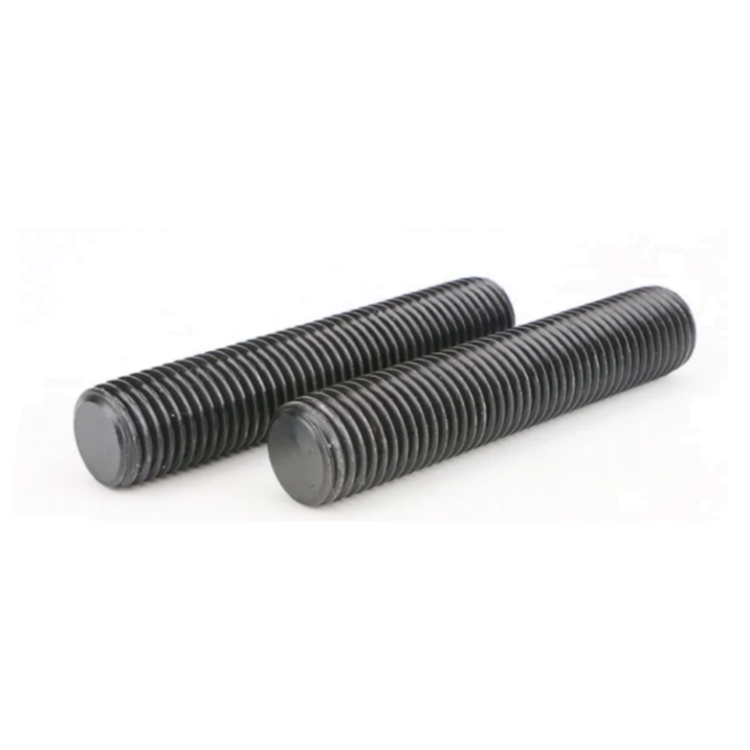Manufacturers of Plastic Screws and Nuts for Various Applications and Industries
Sep . 28, 2024 02:29 Back to list
Manufacturers of Plastic Screws and Nuts for Various Applications and Industries
The Rise of Plastic Screws and Nuts in Modern Manufacturing
In the rapidly evolving landscape of manufacturing, the need for innovative materials has never been greater. Among these materials, plastic screws and nuts have emerged as a vital component in many industries. This article delves into the reasons behind the growing popularity of plastic fasteners, explores the factories that produce them, and discusses the implications for the future of manufacturing.
The Advantages of Plastic Screws and Nuts
Plastic screws and nuts offer a multitude of advantages over their metal counterparts. One of the primary benefits is their lightweight nature, which contributes to reduced overall production costs and transportation expenses, especially in industries such as automotive and aerospace. Furthermore, plastic fasteners do not rust or corrode, which is a significant advantage in environments exposed to moisture or chemicals.
In addition to being resistant to environmental factors, plastic screws and nuts can be produced in a variety of colors and shapes, allowing for greater design flexibility. This characteristic is particularly appealing in consumer goods, where aesthetics play a crucial role in purchasing decisions. Moreover, plastic fasteners can be manufactured with various types of plastics, such as nylon, polypropylene, and polycarbonate, each offering different properties suitable for specific applications, including durability, UV resistance, and electrical insulation.
Factories Producing Plastic Fasteners
The production of plastic screws and nuts is carried out in specialized factories equipped with state-of-the-art technology. These facilities often utilize injection molding, a process where molten plastic is injected into a mold to create the desired shape. This method allows for high-volume production with consistent quality, making it possible to meet the growing demand from various sectors.
In recent years, many factories have also embraced automation and robotics in their production lines. This integration of technology not only enhances precision and efficiency but also significantly reduces labor costs. Factories that produce plastic fasteners are increasingly adopting sustainable practices, including the recycling of plastic waste and the use of biodegradable materials, in response to the global push towards sustainability.
plastic screws and nuts factories

Globally, countries such as the United States, Germany, China, and Japan are key players in the plastic fastener manufacturing industry. They boast advanced manufacturing technologies and are home to several leading companies specializing in the production of plastic screws and nuts. These factories often cater to a diverse range of industries, including electronics, automotive, furniture, and healthcare, demonstrating the versatility of plastic fasteners.
Implications for the Future
The rise of plastic screws and nuts aligns with broader trends in materials science and manufacturing. As industries continue to prioritize lightweight materials and sustainability, the demand for plastic fasteners is expected to grow. This shift presents both challenges and opportunities for traditional metal fastener manufacturers, who must adapt to a changing market landscape.
Moreover, as advancements in material science continue, new types of engineered plastics are being developed, which promise even greater strength and versatility. This innovation could expand the applications of plastic screws and nuts into sectors that were previously dominated by metal fasteners.
As we look to the future, the integration of smart manufacturing technologies, such as the Internet of Things (IoT) and artificial intelligence, will likely play a significant role in the production of plastic fasteners. Factories equipped with these technologies will be able to monitor production processes in real time, optimizing efficiency and reducing waste.
Conclusion
In summary, plastic screws and nuts represent a significant advancement in the world of manufacturing. Their advantages, combined with the growing capabilities of factories that produce them, position them as a key component in various industries. As we move towards a more sustainable and efficient manufacturing landscape, the importance of plastic fasteners is set to increase, paving the way for innovative solutions in product design and industrial applications. The future of manufacturing is undoubtedly bright with the continued evolution of plastic materials and the factories that harness their potential.
Latest news
-
High-Quality Panel Stud Bolt Reliable Panel Stud Bolt Factory & Suppliers
NewsJul.08,2025
-
High-Precision Fine Thread Locknuts Manufacturer & Supplier Custom Solutions
NewsJul.08,2025
-
PH Imperial Stud Bolt – High Strength Fasteners from Leading Supplier & Factory
NewsJul.07,2025
-
High-Quality Allen Wrench Bolts Leading Factory, Company & Suppliers
NewsJul.07,2025
-
Wholesale Ball Stud Bolt - High Quality Supplier & Factory Price Reliable Wholesale Ball Stud Bolt Company
NewsJul.06,2025
-
High-Strength Alloy Bolts Manufacturer & Supplier Quality Alloy Fasteners Factory
NewsJul.06,2025
